|
I can think of a few moments through life which stand large in my memory, formative scenes etched into my character. My parents and I, a toddler, sitting on the floor around a yellow lamp in a one-room basement, our home at the time. Taking a picture of my parents, the settings on the old camera just as my father had shown me, the camera's perched on the rock I'm crouched behind, and they're way out there on the beach's waterline, waiting for me to click the shutter. Kneeling amongst a cluster of candles and graffiti at a memorial in Paris, taking in a photograph of four smiling young people, all of whom had been alive the night before. I was unable to hold back tears.
One such moment occurred just the other night. I pulled into Rainier & Henderson, the route 7 terminal in Rainier Beach, to a cacophony of whirring blue and red flashbulbs, with emergency response vehicles and personnel littered all over the roadway. There he was on the other side, across the street, sitting in the bus shelter, clutching his stomach. That's Gary. White lights hot on him, direct, his green uniform polo soaking toward a darker red. The ambulance had just arrived, and here's the fire department. Men and women in uniform, behaving quickly, setting down cases of instruments and cutting open his uniform. They're at work. Seconds matter in a time like this, and they know it. Seattle Police is everywhere, King County Sheriffs also, they're talking amongst each other, heads turned into radios. People wondering what's going on. A bus is blocked by the activity, and another behind it; two teens talk with a few of the policemen, gesturing down the avenues, describing the suspect and speculating on escape routes. It's a fraction of a second of a thought, but I'm pleased at that part of the image: white cops and young black men working together, united in the urgency of addressing an obvious wrong. I hear a woman's voice, a woman in scrubs specifying: "looks like a two inch blade. Four, five stab wounds." Operator Gary Fuller is a friend of mine. In life I've seen strangers being killed, injured, or dead; but never a friend. They're standing him up now, helping him rise. He's surrounded by aides and officers. I'm working my way through the crowd. They've scissored his uniform off now, wrapping the bandage around his body to stem the flow. I remember noticing one of the EMT staff putting on a bouffant cap. His blood speckled the length of the sidewalk, and would remain visible after everyone had gone. It dribbled so freely, and I remember being confused: I've forgotten how easily a body can be torn open, how all the flesh and organs we never see are right there beneath the skin, living and real as day. I pushed through the officials, not knowing why. What could I offer that they couldn't? Was I interfering with the process of things? He saw me. "Nathan!" "Gary," I said. "Gary." "Nathan," he said, and then he laughed. He was smiling. He gave me a thumbs up: "Rainier and Henderson, baby!" I stand in the shadow of the size of that moment. The events of the evening will be formative for him in a way he will shape later on. For me, no lecture or stack of books could educate me more than his bearing in those minutes, in that context. This is a way to react when the chips are down. There's still blood coming out of him, for pete's sake. To live on the thread of the act of self, of being thrillingly alive, and go ahead, let yourself be exhilarated by it. Is anything else a bigger deal? "Love you, man," I called after him, as they finished tying him down on the stretcher and preparing an IV drip. I needed him to know that he is loved in this world, loved and respected and appreciated by family and strangers, by his children, coworkers, and yes, by the passengers too. I sincerely hope he, and other drivers who get assaulted, don't read the passengers as an entity which is against them; but rather a collection of random individuals, all of whom have nothing to do with the one person who antagonized them so on a particular night. I said it again. They were loading him into the vehicle. I said, "hey, can I do anything? You want me to call someone?" "Hey– yeah. Tell Dispatch to call my wife." "Done. Got it." The event was minutes old. I would go to my bus and begin relaying information to the coordinator. What happened, what did the assailant look like. I would work with several people trying to get a description the coordinator could put out. The street kid who was still there was the most informative. I told him, "shoot, you give better descriptions than the cops!" Four other drivers were milling about, some of us on the phone with our superiors, all of us reeling. It was too early to try to make sense of things. I wouldn't begin thinking logically about the event until a day or two later. Gary is my leader on Sundays, and my bus therefore had double loads for a while as I picked up his waiting passengers in addition to my own. I gave them the best ride I could, buoyant, balancing out the thoughtless negativity of what had happened with a truckload of caring, the good treatment of Gary's people I'm sure he would have appreciated. I felt like being generous. But what kept coming back to me was his grin. It didn't make sense, and it was beautiful. That's called strength of spirit. --- Note: this event is a little more complicated than the news-media would have you believe. That's not what this post is about, however. All I'll say on the subject is, the news wants you to be terrified. Don't they always? Don't buy into their fear-mongering. Please.
9 Comments
You may have heard about an incident involving an operator in Rainier Beach this past Sunday night. The operator is a friend of mine, and he's going to be fine. There's quite a bit more I'd like to say about this topic, and have written a blog post detailing my experience on scene, but am waiting for permission from the operator to do so.
I arrived several minutes after the event and gave a description of the assailant– who did get apprehended– to the coordinator. The only reason I was able to give a fuller description than what the police had is because the two street kids who were present know me and like me, and were thus more willing to cooperate with me. It pays to be nice to folks. You never know how it might come back around. He's at it again– giving this city the Nathan treatment, for better or worse: blurry multiple exposures! Colors! Famous monuments and buildings photographed so they basically become totally unrecognizable... I'm very happy to share with you two brand-new galleries of film images, and a few thoughts of mine on the city where the buses are boats... enjoy!
PS– yes, all my images are for sale. Inquire! But more importantly, enjoy! I didn't know him. But I wanted to talk to him. Most homeless folks are white men between thirty and sixty, and he was just such a fellow, sitting on the upper end of that age spectrum. I was stuck for something to say. Time to resort to the old standby:
"Been in Seattle long?" "Um. Uh. I lived here long time ago." "Okay." "I came back," he said. "Did a lot of time." "Well, I'm glad you're–" "This is, this is probably the best place to be homeless in the state." That's definitely true. I agreed. "There are good resources here, yeah," "I was in Spokane they didn't have aaany–" "Man," "They try to put you away for bein' homeless," He was taller and thin, with wire-frame glasses from another decade and one of those burnt yellow suede construction trucker jackets, thick for breaking chill wind, the kind you maybe used to see more often in years past. "Oh gosh," I said. "I'm glad you're here. Hopefully you know, six months from now you'll get on the bus and tell me, 'I have a, I found a place," "Hopefully sooner than–" "Hopefully sooner than that, yeah. That's one a my favorite things about this job actually, when I, when I uh. Just today actually, earlier today this guy came up to me and said that exact thing he's like, 'I finally found an apartment.' I love hearing that, you know. It does happen. I wish there was... there's so many great resources here but I wish they were easier to know about." "Right?" Wouldn't this be a good idea? Perhaps a card to hand out which amalgamated all the major resource entities, what they provided, hours, addresses and the like? I feel like I've heard of other cities which do this. Such an item would be immeasurably more useful than seventy-five cents or half a cheeseburger. "They seem sort of scattered and unconnected," I continued. "There's great organizations," "That's good," "But they're gonna give you everything but housing. 'Cause this is prime fuckin' real estate." "Yeah it is, yeah. I'm wondering if twenty years from now we're all gonna have to move to Tacoma or something. I hope not, but yeah." "Well on top of it, a lot of people are homeless by choice."* "Yeah and I have to like," "Question," Not quite what I was going to say. "Well, I have to like, give everyone the exact same treatment because I don't know if it's by choice or not by choice, and if it's not by choice I wanna help 'em out as much as possible, but I can't question which it is, I just have to help 'em. 'Cause I don't know which it is." "Yeah. 'Cause some folks just wanna get high and," "Yeah. And it makes it hard for folks, like yourself, who're actually trying to do something." "Well you know, I got a drug problem myself, but I'm fighting it." "You're a good guy. That's worth the fight, man." That may read as tacky from the comfort of our desk or phone, but it felt fresh and right in the moment. Because nobody says you're a good guy, you're a nice guy, not out here on the street at this time of night. It means something in that realm, a spark of genuine care, and I could tell he appreciated it. Sparks like that can be the tipping point from a bad night into a good one. -- *A thorny and gargantuan can of worms I'll address in an upcoming post. I stood by the farebox, toggling the switches as the wheelchair ramp slowly came to life. It took an extra second. To the folks seated nearby I said, "this' probably the first time that lift has ever been used. Bus is so new."
"Pretty fancy bus, huh?" That's Solomon, a face I've known on the 7 so long it'd be an insult to call him a mere acquaintance. We've shared countless accumulated hours together, bantering on his way home from his hotel catering jobs. "Yeah, these things are incredible," I replied. There was time to talk as the wheelchair-bound passenger, at whom I nodded, situated herself. "They're so expensive." "How," "Each one is one million." "A million?" Raised eyebrows. "Yeah, the pure electric, the battery, and it's all good, you know, metal parts and everything, like if somebody rear-ended us, you know how these buses are, we might not even feel anything." "Man!" "Yeah, they're good. No wonder they raise the fares!" "Ha! This thing better work! For one million! Y'could buy a mansion with this!" "Yeah, lemme take this to the pawnshop! See what we can get!" "Buy a nice waterfront–" "Well, not all of it," said the lady, agreeably, as I strapped her in. This was the back-and-forth of a community that has no qualms about speaking to each other, to itself. "'Cause my old place at 30th and Yesler goes for nine hundred now." "Well yeah," Solomon ceded, "I was thinking of ten, fifteen years ago." I quipped back with, "we'll just have to grab two of these buses then!" "That'll cover it!" They continued building together, strengthening the web we call community, stewardship. Others joined in after a time, making the front of the bus the new back of the bus. I dropped out of the conversation, preferring to listen, smiling to myself as I took the curves on Rainier. People will always talk with each other. I used to worry that the low-floor layout of the new buses would limit interaction, customer service, and conversation in general. I would fret that the speed of contemporary life and alienating components of technology would eliminate actual human contact. But my days on the route now are hardly different than five years ago, when less people had earbuds and smartphones, when drivers announced their own stops, passengers exited through the front, and the chat seat was right by the driver. The removal of all of these things hasn't been able to stem the tide of human desire, the fervent, aching need to reach out, to be acknowledged and loved. Bjorn Magnussen said all human actions are manifestations against death. Pithy changes in bus layouts and societal patterns can't touch that. We, the cave-dweller and the modern man entire, wish deeply to assert our existence to others, our being, to let someone else and by extension ourselves know through love, hate, or otherwise, that there was a time once, long ago. A time when we were here. Some actors just radiate intelligence. You feel it in their eyes, their bearing, their enunciation. Think of Max von Sydow or Juliette Binoche. Natalie Portman, Henry Fonda. In the way we would never buy Chaplin or Gregory Peck as villains, I have real trouble believing these people playing dull-witted dolts. Wouldn't you? I'd argue the reason is because it's pretty hard, I would say nigh-impossible, to hide certain types of intelligence. You can't conceal sensitivity. Of course many people know much more than they let on, and there are myriad types of wisdom, but there's a certain strain that goes unclothed, which you feel in one's gaze, and the timbre of their voice. This fellow, standing beside me now at the front of the bus, was like that.
He was perhaps mid-forties, African-American, in outdoor work shoes and sturdy pants, carpenters if I recall correctly, with the hood of his hooded sweatshirt up and covering his bald pate. "You're as constant as the sun," he'd said with a smile when I showed up, grinning out from behind wire-frame spectacles. "I do my best," I'd replied, amiably. "Alright, another day," I said, as we approached the last stop in Rainier Beach, his, a nightly routine. "I suppose," he answered. The humor of the line struck me in a pleasantly silly way, and I giggled. Then I said, "okay, last night you said something very wise. What was it, I forget." Another line with latent humor. We chuckled at ourselves, but I really did want to know what he'd said. I'd forgotten to notate it, and had spent the last twenty minutes wondering what it was. "The day before you mentioned circadian rhythms," I continued, "which I took note of, and then last nigh– gosh, you said something last night that was awesome." He paused before saying, "oh! About good and bad!" "Yeah!" The storytelling voice. "There is no good and bad. Thinking makes it so." "Thank you! That's brilliant! There is no good and bad, thinking makes it so. I'm gonna write that down." "Yeah." "Yeah!" "Yeah, Shakespeare said that." "Okay." "Yeah." "Smart guy," I said. "Well, who knows where he got it from," "Exactly," "When you think about it though, it's true!" "It is! It is! So much of it is our perspective…." We stood outside at the Rainier Beach terminal and chatted a bit more, citing examples, talking about rain and complaining and crops and farmers. The excitement of the notion, that we were in control of much more than we might realize, energized us. Our steps shown a little brighter now, out here in our corner of the city, two men exchanging thoughts in an empty parking lot on the wrong side of town– or maybe the right side. I yelled the line back at him as I jogged across the street to the comfort station. Our smiles echoed in the rising night. She was standing there at Dearborn, and I sighed. She was Rose, and the question was whether or not to let her on. Elderly, infirm, and heavyset, with a stuffed stroller, as quick to snarl as I am to smile, with stringy silver hair and corresponding eyes, tiny ones, which nevertheless had enough bile in them to rage against all about her, all the time. I don't think this is what Dylan Thomas was talking about.
A line of people boarded before she did, and I sat there wondering what to do. She'd been on my bus recently and behaved such that it would be appropriate to refuse her service, but true to my form (as I explain here), I'd forgotten the details. Her tendency is to harass anyone in her way. Ah yes, memories were coming back, against my will: among other abrasives she'd yelled at an elegant Somali woman in the aisle in a manner completely confounding to the lady, who seemed as bewildered as she was hurt, as if thinking: when did people of this age group behave without manners? The thing is, I just don't like refusing service. I've never even kicked off LSBW, for Pete's sake. I believe these folks, highly disagreeable though they can be, deserve to ride as much as I do. "Rose, hello," I said, with no great amount of enthusiasm. "How you feelin'?" "Good," she replied, shifting her weight. "Okay. In that case, come on in!" I began the process of deploying the ramp. On the very oldest and very newest coaches, that takes forever, but on this mid-2000s model it came out quickly. Rose ambled forward at her pace and no one else's. Should I begrudge her the right to be unhurried? It's difficult when fifty people in the vicinity feel differently. I like to be the one person who is patient, who does give them a small oasis of acceptance, here in the desert of the harried and overtaxed. Rose's attitude doesn't exactly make this easy. "Goddamnit," she explained, pushing her stroller forward at no considerable speed. It was a puny affair and long past its due, lightweight white dirtied by time, buckling under the weight of several huge bags no stroller designer ever thought of. The wheels had rusted to a stop and no longer turned in the direction of travel, and some didn't roll either. She grunted with effort, cursing, each small impediment a worthy cause for fury: the lip of the ramp where it meets the cement; the geography of the bus's floor layout, requiring her to turn the stroller; limited visibility; the bags slipping; and more than all of this, the weight of the years, the accumulation of strife, seeds of misery now grown, long percolating as only she knew. I'd already gestured to the brothers behind her, saying, "you can use the back door if you want to!" They were thrilled. Forget fare; this got them nearly five whole minutes– an eternity on the road– of comfort. "My wheel is stuck, the wheel on the stroller," she bemoaned. "I know," I said. "That's okay, come on in. I'll make some room for ya." I walked over to the front seating area and flipped up every seat that was empty, saying to those uncertain whether they should move, "we'll let her decide where to sit." As she arrived in the seating area– which I know is only a few feet from the door, but you really have to imagine slow motion here, like a cargo frieghter docking at port– she snarled, "put that seat down! I want that down!" "What do you want, Rose? Tell me what you want." "I want that down." "This one?" "Yeah." I flipped the seat down. "Alright," I said, mostly to myself. Back in my own seat, I gave her a moment to get settled before saying, "alright, I'm just gonna roll out slowly–" "STOP THE BUS YOU FUCKING BITCH NOW!" "You're all right, Rose, we're stopping." "Bus driver won't stop the goddamn bus, goddamnit–" "You don't need to yell, Rose," "Motherfucker," "If you yell at me, I won't pick you up again." She continued muttering. I was thinking about how her raspy tone was practically identical to Honey Bunny's voice in the opening scene of Pulp Fiction, where right after Tim Roth tells everyone, "everybody be cool, this is a robbery," Honey Bunny climbs atop the table and in the very opposite of cool-headedness shrieks, with hair flailing and to excellent comic effect, "any of you fucking pricks move, and I'll execute every motherfucking last one of ya!" Wouldn't Rose and Honey Bunny make a terrific dynamic duo? I'd watch that movie. There was time to reflect as we carried on our way. Rose mellowed into a hesitant silence, and I let my musings wander. My first thought was, well, I'm definitely not letting her on in the future. No need for all this drama. I'm not kind so that people will be kind to me, but when kindness is returned with such vitriol, one's enthusiasm wanes. I thought about a 41 driver I used to see regularly, older guy, generally rude to the folks, sometimes cringe-inducing. It went that way for years, until one day he was friendly. What? What gives, I wondered, and asked him how he was doing. He shared that finally, after decades of excruciating back pain, he'd at last had a surgery that took the agony away. I felt embarrassed for ever having judged him, and thankful for the context. What travails had Rose endured? What collusion of life events had led to this unfantastic present, this day-to-day existence you knew was not her high point? To ponder the disappointments those small grey eyes had been privy to. I would never know the details, but being kind certainly wouldn't make things worse. It also occurred to me that she wasn't going anywhere. She's a longtime fixture on Rainier. What was I going to do, pass her up every other week and force some other poor operator to put up with her? No. Too selfish, too cowardly. I needed a different solution. She always gets off at Mount Baker. When we arrived I didn't deploy the lift just yet. "One second," I gestured to the people waiting outside. I walked back to where she was, and took my right hand out of my pocket. I was ready. "Okay." I stood directly in front of her and spoke clearly, firmly. Everyone was watching. People wondering, what's going on here? "Okay, Rose. You need to get a new stroller. This is twenty dollars so you can go get one. If you don't have a new stroller the next time I see you, I am not gonna pick you up. You have to get a new stroller. Okay?" I think her day started over right then. Sunset and sunrise, in the moment between my "okay" and her reply. She looked at me, nonplussed*, dazed into confused silence. Rose, taking it in. Her world was getting larger. "Okay," she said. She said it quietly, accepting the bills I almost never carry but happened to have that day. Once again, I asked the brothers (and sisters!) outside to use the back door, and Rose gathered herself and began the procedure for liftoff. When she passed me, sitting in my driver's seat, she stopped and patted the hair on my head. Her way of saying thanks. "I know you're not supposed to touch the driver," "Well. I guess that's okay for today." When she was outside, just off the ramp, she turned back slowly and asked, "what was your given name?" "Nathan, like Nathan's Hotdogs. Yeah." "Okay." "I'll see you again, Rose!" "Okay!" I drove in silence for a minute. We sat at the light at Martin Luther King Way. Mia was sitting up front, a regular rider. She'd seen everything. We were silent for a moment longer, and then we laughed. We cackled together, at the joy of it, the comic absurdity of it all, laughing out my frustration, Rose's anger, her pace, at the ridiculousness of my tone giving her money, practically demanding, angrynice, feeling good that we'd done something. "You know?" we told each other, grinning wide. I said, "hopefully we just made life easier for her... and fifty other bus drivers!" "And who knows how many passengers!" We chuckled some more. In my mind though, I kept returning to the sight of her on the sidewalk at the very end, clutching two $10's and one very dilapidated stroller and looking out at the world around, looking calmed, bewildered. Rested. The things she thought were rules had changed a bit. It was a new world. --- *Nonplussed means surprised and confused, usually to the degree of not knowing how to respond. Lack of knowledge over what this word means has led to its developing a slang usage in the US exactly the opposite of its original definition; you may hear people use it to mean unsurprised or unperturbed (search the definition on Google for a laugh, as you'll be presented with two perfectly opposed meanings). I use the word here for its original definition. |
Nathan
Archives
July 2024
Categories |
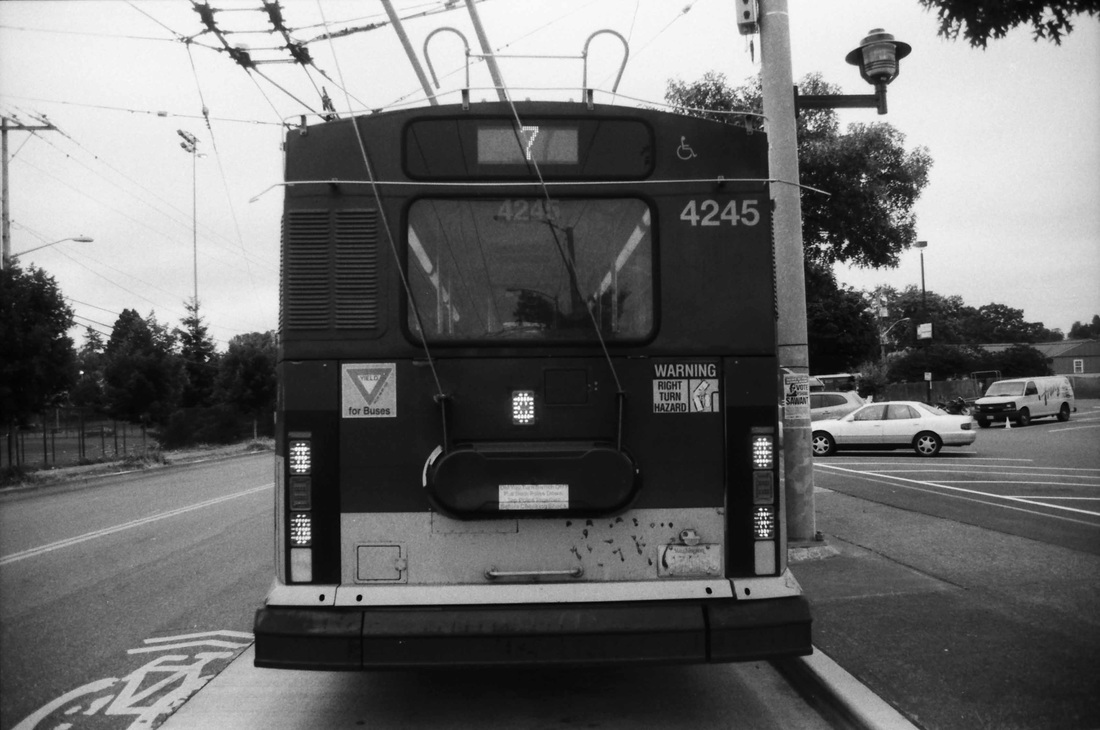
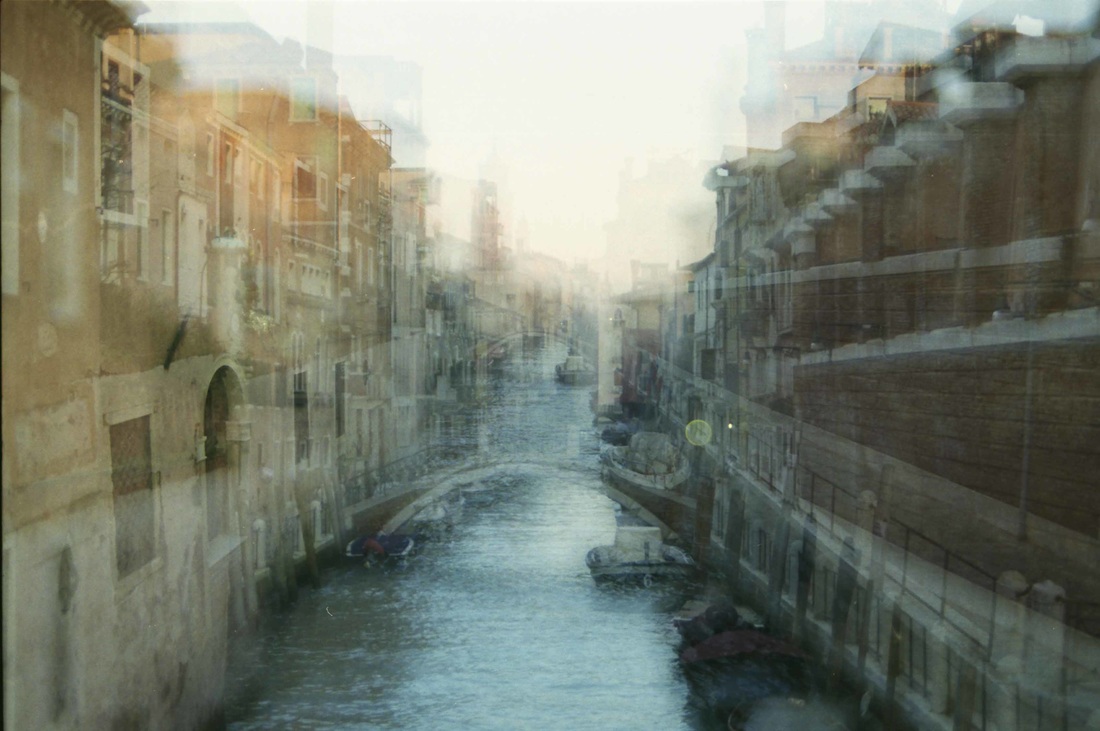
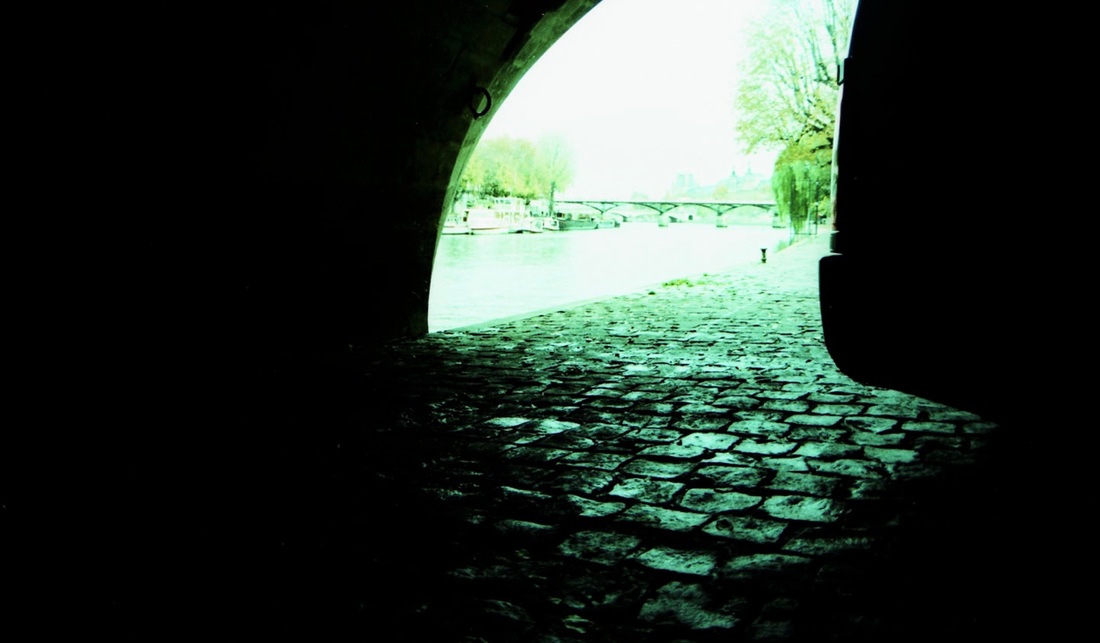
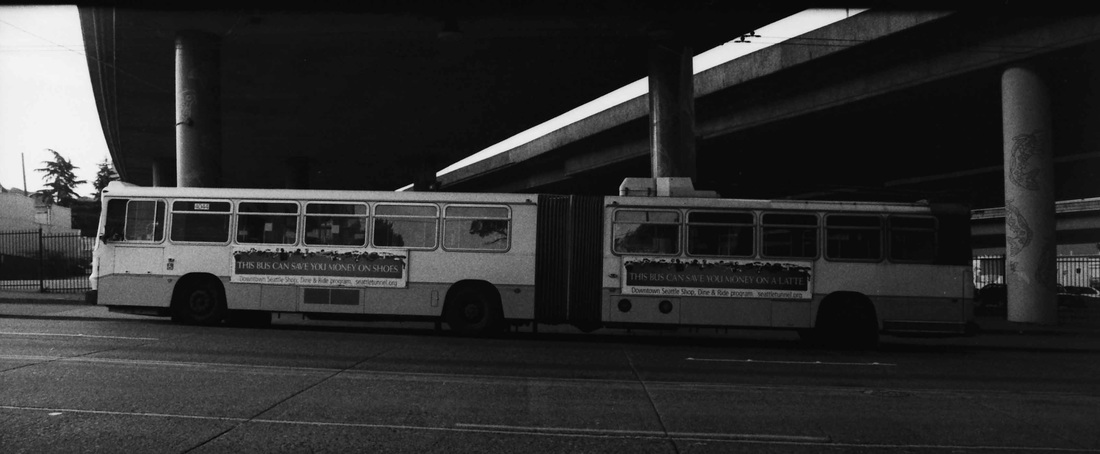
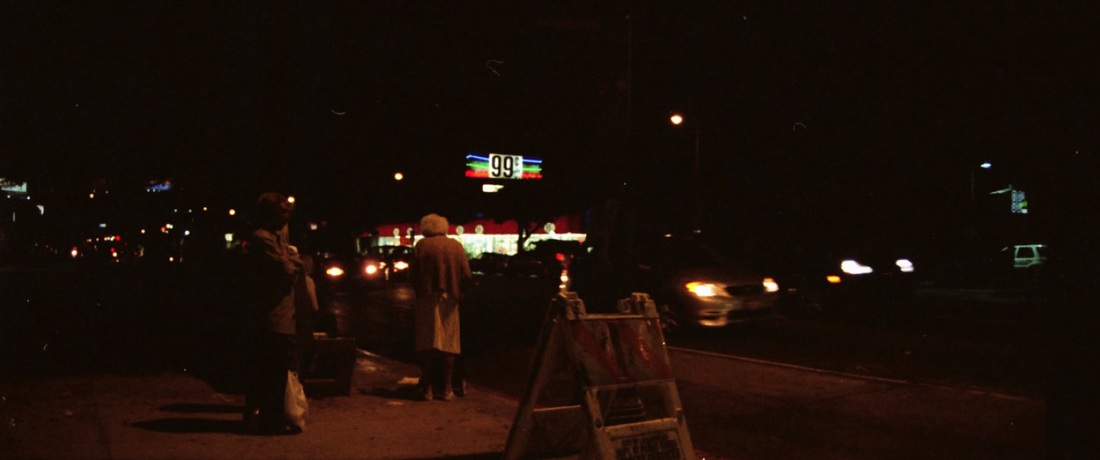
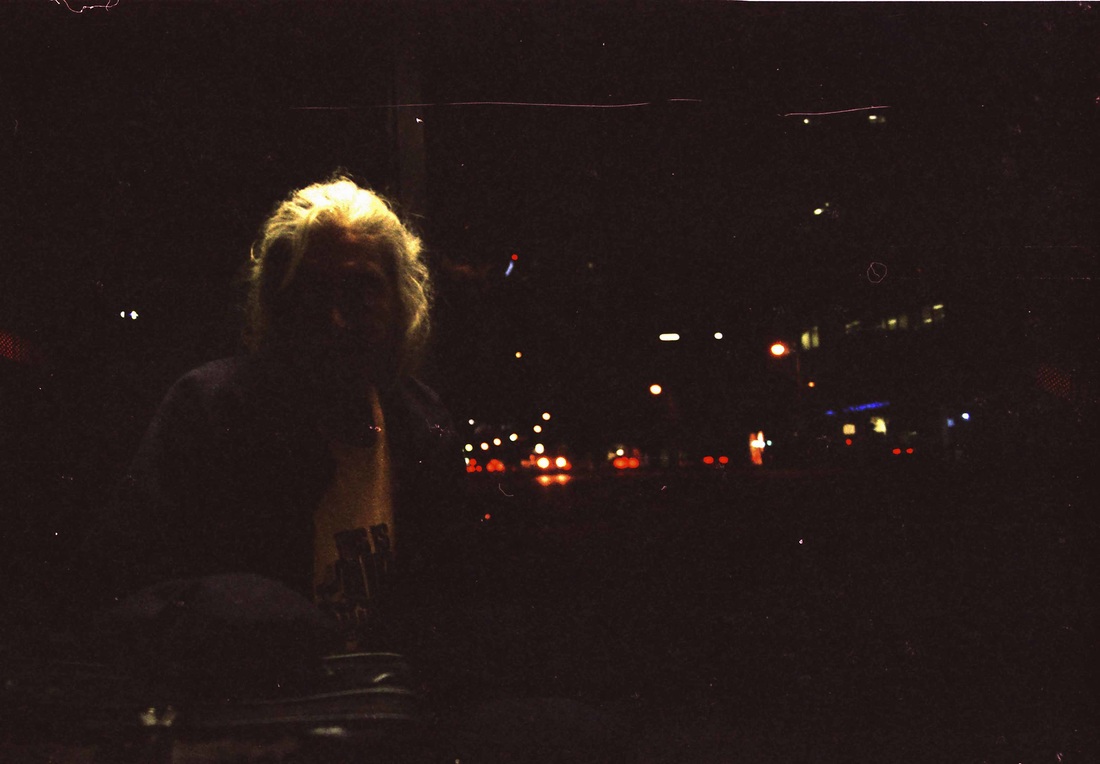
 RSS Feed
RSS Feed
